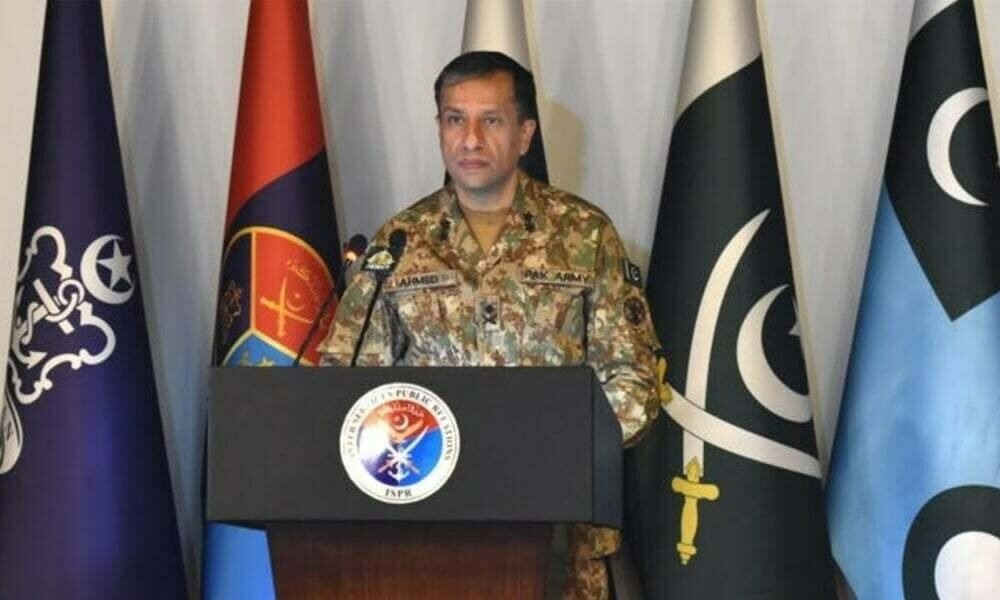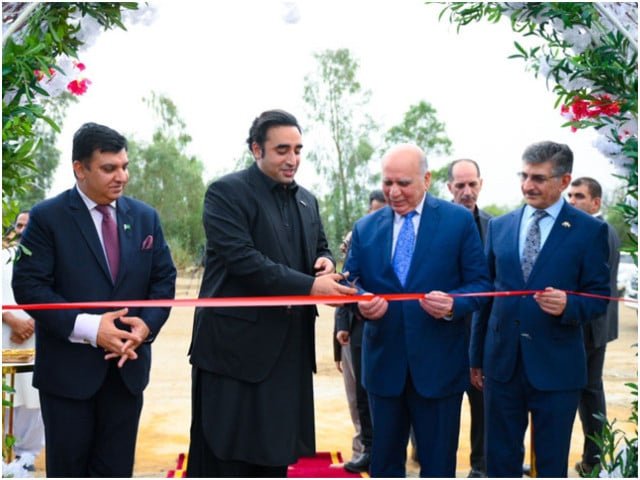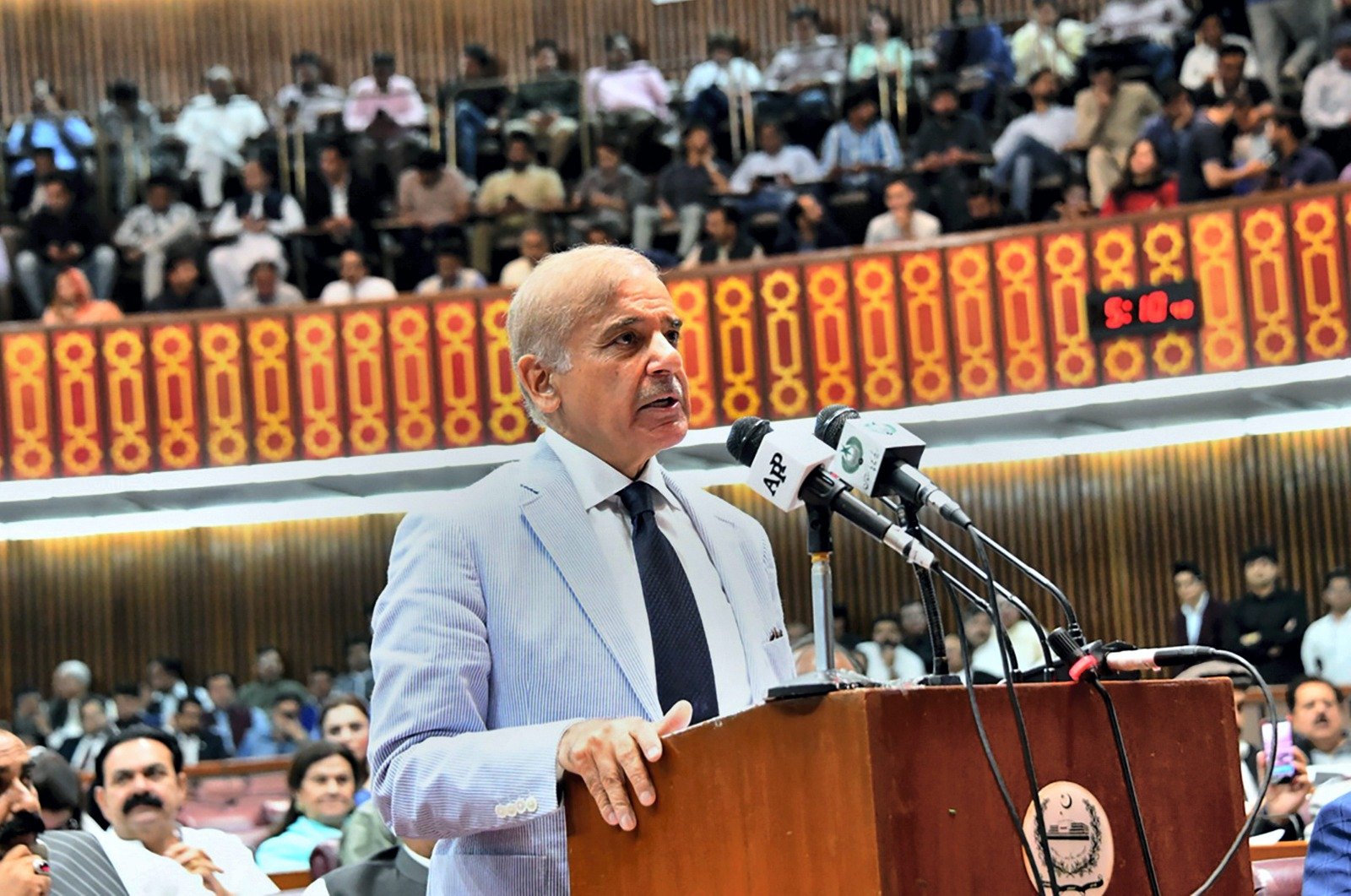Pakistan Army’s Sole Focus is National Progress, Says DG ISPR Amidst Rising Allegations

In a recent press conference held at the General Headquarters (GHQ) in Rawalpindi, Lieutenant-General Ahmed Sharif Chaudhry, Director General of Inter-Services Public Relations (ISPR), reiterated the Pakistan Army’s stance on the resolution of the Kashmir dispute. He emphasized that regional peace would remain unattainable until the issue is resolved in accordance with the resolutions of the United Nations Security Council. Below are the key points discussed during the conference:
Resolution of the Kashmir Dispute
Lieutenant-General Ahmed Sharif Chaudhry firmly stated that the settlement of the Kashmir dispute is essential for lasting regional peace. He highlighted the following points:
- UN Resolutions: The Pakistan Army calls for the settlement of the Kashmir issue in line with the resolutions passed by the United Nations Security Council (UNSC). These resolutions advocate for a plebiscite to allow the people of Kashmir to decide their future.
- Regional Stability: Chaudhry stressed that without addressing the Kashmir dispute, peace in South Asia would remain elusive. He reaffirmed Pakistan’s commitment to supporting Kashmir’s cause and emphasized the importance of international intervention to address the ongoing conflict.
- Human Rights Concerns: The spokesperson expressed concerns over human rights violations in Indian-administered Kashmir, urging the international community to hold accountable those responsible for atrocities against the Kashmiri people.
Military Operations and Counter-Terrorism Efforts
During the briefing, Lieutenant-General Ahmed Sharif Chaudhry provided detailed insights into the operations being conducted by the Pakistani security forces across the country:
- Ongoing Operations: He revealed that a total of 23,622 intelligence-based operations (IBOs) have been conducted this year, with 2,045 operations taking place in the last 15 days alone. These operations have led to the elimination of 24 terrorists in recent weeks.
- Daily Operations: The military, in collaboration with law enforcement agencies (LEAs), conducts over 100 IBOs daily to dismantle terrorist networks and maintain security.
- Focus Areas: The army’s operations are particularly concentrated in the merged districts of Khyber Pakhtunkhwa, a region with a history of militant activity. The ISPR chief reiterated the military’s commitment to continuing its anti-terrorism efforts until the last militant is neutralized.
- Countering Tehreek-e-Taliban Pakistan (TTP): Chaudhry noted the government’s recent designation of the outlawed Tehreek-e-Taliban Pakistan (TTP) as “Fitna al-Khawarij,” emphasizing that the group does not represent Islam. He explained that all terrorists associated with TTP would now be referred to as “Kharjis,” reflecting their disruptive nature and disassociation from Islamic principles.
Role of the Pakistan Army in National Development
The press conference also shed light on the developmental projects and societal contributions undertaken by the Pakistan Army:
- Developmental Projects: The Army collaborates with federal and provincial governments to execute various projects aimed at improving infrastructure and public services across the country.
- Polio Eradication Campaign: Over 66,000 military personnel are engaged in ensuring security for the polio eradication campaign, reflecting the army’s role in public health initiatives.
- Educational Initiatives:
- Balochistan: The Army has established 92 schools, benefitting 19,000 students in Balochistan. Moreover, technical education programs have supported over 5,000 students in acquiring essential skills.
- Gilgit-Baltistan and Azad Kashmir: 171 schools and three cadet colleges have been set up to provide quality education in these regions.
- Healthcare Efforts: Medical camps are regularly organized in various districts, offering free treatment and healthcare services to local communities.
- Economic Projects in Gwadar: The Army Chief has initiated employment projects in Gwadar, with 104 different initiatives underway, aiming to boost economic activity and development in the region.
- Infrastructure Development: Local and foreign companies, in partnership with the military, are engaged in numerous infrastructure projects, particularly in the merged districts of Khyber Pakhtunkhwa, to enhance connectivity and local economy.
Challenges and Future Outlook
Lieutenant-General Chaudhry addressed some of the significant challenges faced by Pakistan and outlined the army’s role in addressing these issues:
- Economic Security: Chaudhry acknowledged that economic security remains one of Pakistan’s most pressing challenges. He emphasized the need for comprehensive strategies to stabilize the economy and ensure sustainable growth.
- National Security: The ISPR chief reiterated the army’s commitment to safeguarding Pakistan’s national security, highlighting the ongoing efforts to counter external and internal threats.
- Regional Cooperation: The military spokesperson expressed hope for improved regional cooperation and dialogue, which could contribute to resolving longstanding conflicts and fostering peace in South Asia.
The Pakistan Army’s press conference underscores its multifaceted role in national security, counter-terrorism, and development. The emphasis on resolving the Kashmir dispute aligns with Pakistan’s longstanding position and highlights the critical role of international diplomacy in achieving regional peace.
With continuous efforts in counter-terrorism, development, and social welfare, the Pakistan Army seeks to maintain stability and support national progress. The military’s involvement in public health, education, and infrastructure development projects showcases its commitment to contributing positively to Pakistan’s future.
The army’s proactive stance against terrorist organizations like the TTP demonstrates its resolve to combat extremism and protect the nation’s integrity. As Pakistan navigates complex regional dynamics, the army remains a central pillar in ensuring security and facilitating development.
Recent Updates on Kashmir and Pakistan-India Relations
- Kashmir Conflict and International Stance:
- The Kashmir issue continues to be a point of contention between India and Pakistan, with both nations maintaining their respective claims over the region.
- International bodies, including the United Nations, have called for peaceful resolutions to the dispute, emphasizing human rights and dialogue between the two countries.
- Recent Military Engagements:
- Cross-border tensions have occasionally escalated, leading to exchanges of fire along the Line of Control (LoC). Both India and Pakistan have accused each other of violating ceasefire agreements.
- Diplomatic Efforts:
- Recent diplomatic efforts have focused on confidence-building measures and the resumption of dialogue to address bilateral issues, including Kashmir. However, significant challenges remain in achieving lasting peace.
- Impact on Regional Security:
- The Kashmir conflict significantly impacts South Asian security dynamics, with implications for broader geopolitical relations, including ties with China and the United States.
Key Initiatives and Partnerships
- Food Security: The Pakistan Army is actively engaged in initiatives to ensure food security, working alongside governmental agencies to address agricultural challenges and improve food distribution networks.
- Community Engagement: Military personnel participate in community engagement activities, fostering trust and collaboration with local populations in conflict-affected areas.
- Environmental Sustainability: The Army is involved in projects aimed at environmental conservation, including reforestation and water management initiatives, to combat climate change impacts.
Future Prospects
- Enhanced Security Measures: Continued focus on strengthening border security and counter-terrorism operations to safeguard national integrity.
- Economic Growth: Support for governmental economic policies aimed at revitalizing key sectors, encouraging foreign investment, and boosting local industries.
- Peacebuilding Efforts: Ongoing diplomatic efforts to resolve regional conflicts and promote stability through dialogue and cooperation with neighboring countries.
As Pakistan navigates complex challenges, the role of the Army in maintaining security, fostering development, and advocating for peaceful resolutions remains vital. The emphasis on resolving the Kashmir issue through international frameworks highlights the need for sustained diplomatic engagement and regional cooperation.










